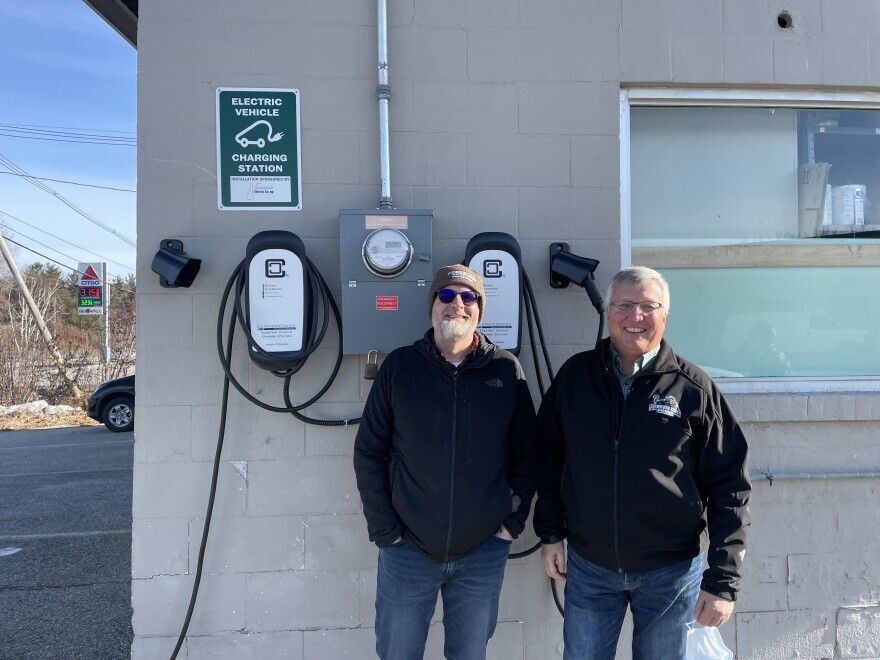How an EV charging pilot program at Plymouth State could help transform the grid

Stephen Foster, director of Facilities at Plymouth State University, and Bill Johnstone, business development executive at the New Hampshire Electric Co-op, stand in front of PSU’s EV chargers. The school plans to get two new ones in the spring. (Mara Hoplamazian/NHPR)
If you’re not looking for them, Plymouth State University’s electric vehicle chargers don’t stand out as much as the town’s Irving Oil and Citgo.
But soon, the school will have two new chargers that are part of a much bigger project — a pilot program to test out technology that could help power New Hampshire’s electricity grid using electric vehicle batteries.
Working with the New Hampshire Electric Co-op, Plymouth State is installing vehicle-to-grid charging stations. Those bi-directional chargers will allow the university’s two electric Nissan Leaf cars to double as battery storage for the energy system.
The batteries in the car would give power back to the grid when there’s a lot of demand for electricity.
These vehicle-to-grid chargers will be the first in the Co-op’s territory. PSU’s pilot is one of many demonstration projects across the country, and experts believe vehicle-to-grid technology could change the grid by lowering electricity bills for participants and supporting the transition to renewable energy, among other outcomes.
“It could be a way to establish battery and energy storage systems that don’t require as much centralized investment,” said Brian Eisenhower, director of the Office of Environmental Sustainability at Plymouth State.
The project started with a pitch from Bill Johnstone, a business development executive at the Co-op, in the summer of 2021.
“It’s baby steps here – two Nissan Leafs are not going to make a difference in the New England grid,” he said.
“But it’s testing the technology, making sure it’s viable and using this as a test case to show our members of the cooperative that it works,” he added. “Obviously as more come online, it’s going to have a much larger impact [on] the grid.”
Read the rest of this story and hear the audio version at NHPR.org.
